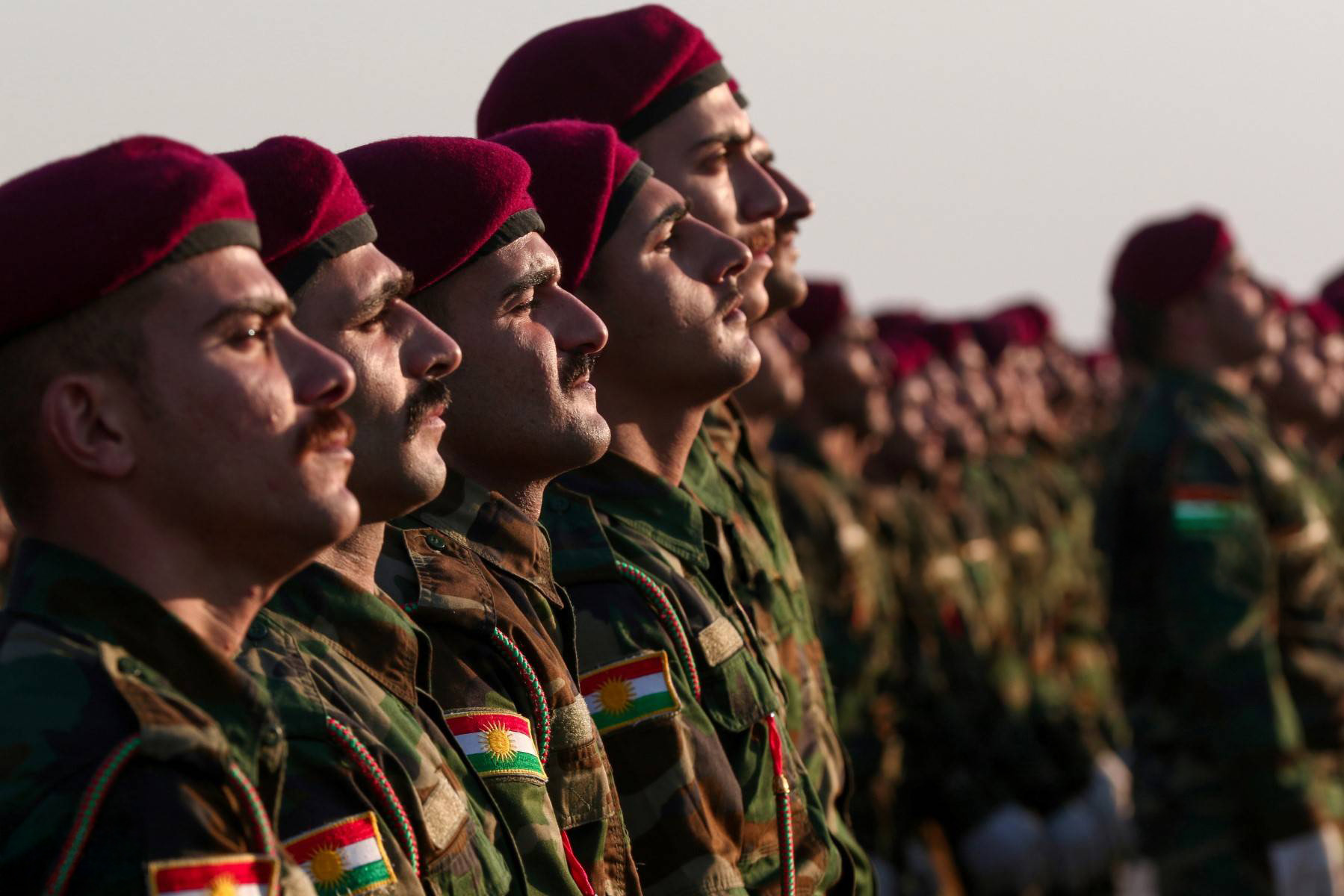Peshmerga Reborn: Kurdistan’s Iron Shield Amid Regional Collapse
The latest U.S. Inspector General report to Congress highlights resilience and steady progress in the Kurdistan Region, spotlighting Peshmerga reforms and its key role in the fight against ISIS.

By Kamaran Aziz
ERBIL (Kurdistan24) — Amid a volatile regional landscape shaped by the collapse of Syria’s regime and shifting U.S. foreign assistance priorities, the Kurdistan Region is increasingly asserting its role as a pillar of security and governance. The latest quarterly report from the Lead Inspector General for Operation Inherent Resolve (OIR), submitted to the U.S. Congress and covering January through March 2025, paints a picture of resilience and steady progress in the Kurdistan Region, particularly in the reform of the Peshmerga forces and the Region’s vital contributions to the global fight against ISIS.
At the heart of the report lies the continued implementation of the U.S.-KRG memorandum of understanding (MoU) to restructure and unify the Kurdish Peshmerga forces under the Ministry of Peshmerga Affairs (MoPA).
Despite ongoing regional and political challenges, including the presence of ISIS remnants, disputes with Baghdad over revenue, and the complex security environment in northern Iraq, reforms have stayed on track.
The report highlighted that four of the planned 11 Peshmerga divisions are now operational or partially operational, and new Area Commands are being established to strengthen command and control.
The report also indicated that the Kurdistan Region has demonstrated clear commitment to building a nonpartisan, professional Peshmerga force. Steps such as transitioning to electronic salary payments—already in place for over 68,000 Peshmerga—and planned retirements of excess personnel mark an institutional transformation long encouraged by international partners.
The creation of the Ministry of Peshmerga Operations Command (MoPOC) further enhances the coordination between the Kurdistan Region and federal Iraqi forces, as well as with U.S.-led Coalition partners in joint efforts to eliminate terrorist threats.
As stated in the report, the Kurdistan Region continues to serve as the central platform for Coalition operations in northeastern Syria. Even as the U.S. plans to wind down direct counter-ISIS combat operations in Iraq by September 2025, the Kurdistan Region will remain a forward operating base for Coalition missions in Syria through at least September 2026. This underscores the indispensable strategic value of the Region in ensuring regional stability.
The report commends the increasing operational capacity of MoPA divisions in planning, logistics, artillery coordination, and ground defense, particularly along the Kurdish Coordination Line (KCL). These advances have made the Peshmerga a more capable force in defending the Kurdistan Region from potential incursions. While challenges persist—especially in overcoming partisan legacies and limited budgets—the progress so far signals a meaningful trajectory toward a unified national security framework.
At a time when U.S. foreign aid programs elsewhere in Iraq and Syria were paused or canceled, support to the Peshmerga remained robust. The report highlighted that the Counter-ISIS Train and Equip Fund (CTEF) allocated $242 million for FY24/25, including $135 million in stipends for Kurdish forces, reflecting continued U.S. trust in the Region’s military institutions.
The Kurdistan Region has also maintained humanitarian leadership. The report suggested that despite the U.S. foreign assistance pause, the Kurdistan Regional Government (KRG) continues to support over 109,000 internally displaced persons (IDPs) in 21 camps, providing electricity, water, and sanitation with limited assistance from Baghdad and international organizations. Visits by USAID officials to camps such as Kabarto 1 in Duhok underscore Erbil’s transparency and cooperation with international actors, while a lack of support for the IDPs from Baghdad.
In the diplomatic sphere, the Kurdistan Region remains an active and respected partner. Deputy Prime Minister Qubad Talabani joined Iraq’s delegation at the Arab League’s emergency summit in Cairo, marking a rare instance of Kurdish representation at such a high-level Arab forum. This participation reflects the growing recognition of the KRG’s importance not only in Iraq’s internal affairs but also in broader regional dialogues.
Internally, there is a renewed drive toward political unity. The report indicated that negotiations between the Kurdistan Democratic Party (KDP) and the Patriotic Union of Kurdistan (PUK) to form a new regional government have reportedly narrowed nearly all outstanding disagreements. The two parties have already agreed on key principles, including a unified government, parliament, and security structure—an unprecedented step that promises to reinvigorate institutional stability ahead of Iraq’s national elections this fall.
Economically, the report emphasized that while federal budget delays persist, the Kurdistan Region remains central to efforts to revive Iraq’s energy sector. The reopening of the Iraq-Türkiye pipeline, which runs through the Kurdistan Region and is vital to Kurdish oil exports, continues to be a U.S. and Iraqi government priority. Secretary of State Marco Rubio and Prime Minister Mohammed Shia al-Sudani reaffirmed its importance in high-level talks. The pipeline’s resumption would not only stabilize Erbil’s revenues but also enhance Iraq’s energy independence.
In sum, the Kurdistan Region is emerging from a period of uncertainty with a stronger institutional foundation, professionalized military, and renewed regional standing. While the broader region faces upheaval following the collapse of Syria’s regime and the reshuffling of militia power dynamics, the Kurdistan Region has proven to be a bastion of relative stability, proactive governance, and enduring partnership with the United States and the international community.
